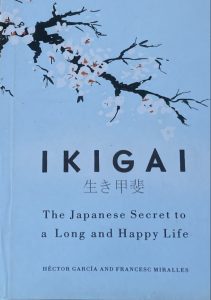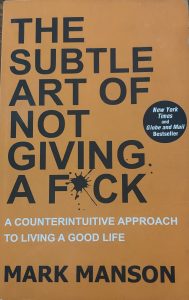Table of Contents
Toggle Book Review
Book Review
Ikigai by Héctor García and Francesc Miralles explores the ancient Japanese concept of “ikigai,” which means a reason to live or a purpose that gives life meaning. It guides readers to discover their own ikigai through practical steps, reflections, and exercises focused on identifying what they love, what they’re good at, what the world needs, and what they can be paid for.
The book offers fascinating insights into the lifestyle of Japanese people, particularly the residents of Okinawa—home to one of the world’s highest populations of centenarians. It discusses how these individuals live long, fulfilling lives through habits like staying active, maintaining strong social connections, eating mindfully, and having a deep sense of purpose.
Blending philosophy, wellness, and real-world stories, Ikigai also touches on broader themes like resilience—referencing how Japan bounced back from tragedies such as the Hiroshima and Nagasaki bombings and frequent natural disasters. There are references to global figures like Steve Jobs, who admired Japanese aesthetics and discipline.
The book is enriched with simple illustrations of exercises and yoga poses, making it not only inspirational but also practical. Ultimately, Ikigai offers timeless lessons on how to live a balanced, purposeful, and healthy life—both emotionally and physically.
What I don’t like about the book?
- While the book discusses Ikigai, a concept deeply rooted in Japanese culture, it may not provide enough context for readers unfamiliar with Japanese customs and traditions. A deeper exploration of their culture could help in enhancing the readers’ understanding and appreciation of its significance.
About Author
Hector Garcia, born in Spain, worked in Switzerland before relocating to Japan in 2004. He rose to fame with his works on Japanese culture. Initially an IT professional, he later turned to writing. His blog “Kirai: A Geek in Japan” and the subsequent book, released in 2008, provide profound insights into Japanese life.
He authored the renowned “Ikigai: The Japanese Secret to a Long and Happy Life,” which, translated into 57 languages. To date, he has published seven books, with “The Book of Ichigo Ichie” being his latest work.
His engaging style and personal experiences have made Japanese culture accessible to a global audience.
Conclusion
Ultimately, Ikigai is more than just a wellness guide—it’s an inspiring journey into the wisdom of Japan’s centenarians, offering readers a path to live longer, healthier, and more meaningful lives by discovering their own unique purpose.




